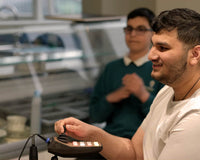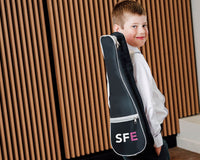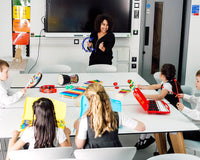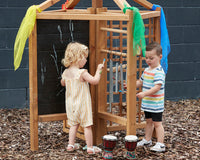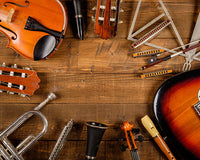Wrong!
First and foremost examiners are not scary and they do not want you to fail! They are marking you to judge where you are as a performer; then comparing to the whole country and the standard they expect of a pupil on that instrument for that grade. I am going to give you some top tips to help with preparation for a music exam, but these are also really useful for when you’re preparing for a concert.Keep Fit and motivated
In the run up before exams, make sure you eat and sleep well to keep your body running healthy. Performing when slightly poorly is horrible and will really damage your confidence before and during the exam. This will lead to more nervousness and this will not allow you to perform as well as you possibly could. If you’re doing an exam on any instrument that requires muscle tension then make sure your practice for longer than the length of the exam so that you are not struggling half way through. This will affect your performance.Failing to prepare is preparing to fail.
This one sounds really silly but you must practice. A music exam requires a lot of work on your instrument. Practice regularly and practice often is the best way to learn for an exam. Some people leave it until the last minute but this is very stressful and doesn’t lead to as high results. Start your scales early and learn a couple every week then add to them with a few more this is a good way to build up your knowledge of your scales. If you need a piano accompaniment make sure you get practice sessions with the accompanist so you know how it will sound. Make sure your instrument is clean and in the best playable condition so your exam goes really smoothly.
My top tips for practice:
- Don’t practice until you can get it right. Practice until you can’t go wrong
- Practice will not always lead to perfection but you will stand a lot better chance of getting close to it.
Practice in front of people
This might sound silly but make sure you play in front of family and friends so that you are used to being the centre of attention whilst you play. It is also good to practice in front of an audience that will not appreciate it for example a dog or a toddler. To ensure you don't get distracted if they run away or make funny faces and carry on, this is useful because the examiner will be writing notes whilst you are playing. Most people dislike the aural side of the exams - practice these especially in front of your teacher or your parents so that you gain enough confidence to sing or hum a tune back to the stranger that is examining you. One day it could be you playing with thousands of people listening.Don’t worry if you make a mistake
When you’re in your exam something will go wrong you will split or clip a note or something that will not make your performance faultless. If you do make a mistake carry on and don’t let it affect you. Just make sure that one mistake doesn’t escalate into a string of them. So always practice to the end of the piece even if you do make a mistake - this will get you out of the habit of stopping every time you play a wrong note The examiner will not mark you down if you make a mistake if you carry on and not let it affect the overall performance.
And finally...smile and enjoy
The most important thing is that you enjoy your experience of playing for an examiner and enjoy the fact you're showing off how good you are on your instrument. If you visualise success every time you pick the instrument up to practice and in the exam, relax and remember everything you have been practicing then it will all end in a positive experience. Then around a month later you will receive a phone call or letter through the post to say that you have passed. This means all the hard work starts again to work towards the next grade you will take.
I hope you have found this blog useful and will put into practice these helpful tips when preparing for a music exam or a big concert performance.




